Jana al-Issa | Lujain Mourad | Yamen Moghrabi | Hussam al-Mahmoud
Without consideration of the refugees’ desire, or their conditions, to return to the place from which they sought protection years ago, the recent set of political moves in the Syrian file has created a wider space for talking about settlements whose features are not yet clear, including the broad lines of returning refugees from neighboring countries to Syria.
Due to various conditions, most notably security, economic, and living conditions, more than 6.8 million Syrians have left their homeland since 2011. Most of them cannot return because the security reasons for their asylum have not disappeared in the first place, and the worsening living and economic situation and the absence of stability.
Despite the years of asylum, which are not considered short, some Syrians were unable to integrate into their host societies for several reasons, such as the host society’s handling of the issue of their asylum, or other security, economic and social motives, which forced them to consider returning to Syria.
But it is an option that faces obstacles and barriers that differ from one person to another.
In this file, Enab Baladi explores the opinion of a group of Syrian refugees in Lebanon, Jordan, Turkey, Europe, and the Americas about returning to Syria under the current circumstances, their motives for returning or not, and their conditions for that.
It also discussed with experts and researchers in economics and sociology the possibility of the Syrian regime providing guarantees in return for the return of the refugees and its desire mainly for their return, in addition to the conditions that must be available in Syria for the return of those wishing to return.
Return is not considered
Enab Baladi surveyed 100 Syrian refugees, 47 in Turkey, 27 in Lebanon, 9 in Jordan, and 17 in Europe and the Americas. The percentage of male participants is 54%, and the percentage of females is 46%.
The ages of the participants in the questionnaire ranged between 18 and 48 years, and the percentage of those with a university education or above is about 73%, while 19% of them obtained a secondary education certificate, and 8% obtained a basic education certificate.
37% of the participants are single, while the remaining percentage of them (63%) are married. Of these, 56% of them have children, while 44% of the participants do not have children.
According to the questionnaire asked by Enab Baladi, 58% of the participants do not feel stable in the country of asylum, while 21% of them answered that they feel somewhat stable, and 12% of them said that they feel stable.
Despite the high percentage of people who do not feel stable, the answer to a question about their thinking of returning to Syria was that 85% do not think of returning, while only 15% of them think of doing so.
The reasons for the lack of stability in the country of asylum were numerous among the participants, represented by the racism practiced towards refugees and the fear of forced deportation, especially in Lebanon and Turkey.
In addition to the economic and living situation and the accompanying high prices that do not correspond to the value of income and the level of wages.
While the responses about the conditions for returning to Syria were mixed, represented by more than one demand, as 78 people said that their conditions for return are the occurrence of a political change, while 52 people considered that improving the living and economic situation is a prerequisite for return, in addition to the need for security guarantees that the regime will not attack them as seen by 66 of the participants.
Regime change was the main condition for the participants, in addition to the existence of security guarantees that the security services would not harm the returnees and the return of safety to Syria in all aspects.
In addition to conditions related to improving living conditions and securing the basic needs of the family, such as electricity, water, gas, and the level of education.
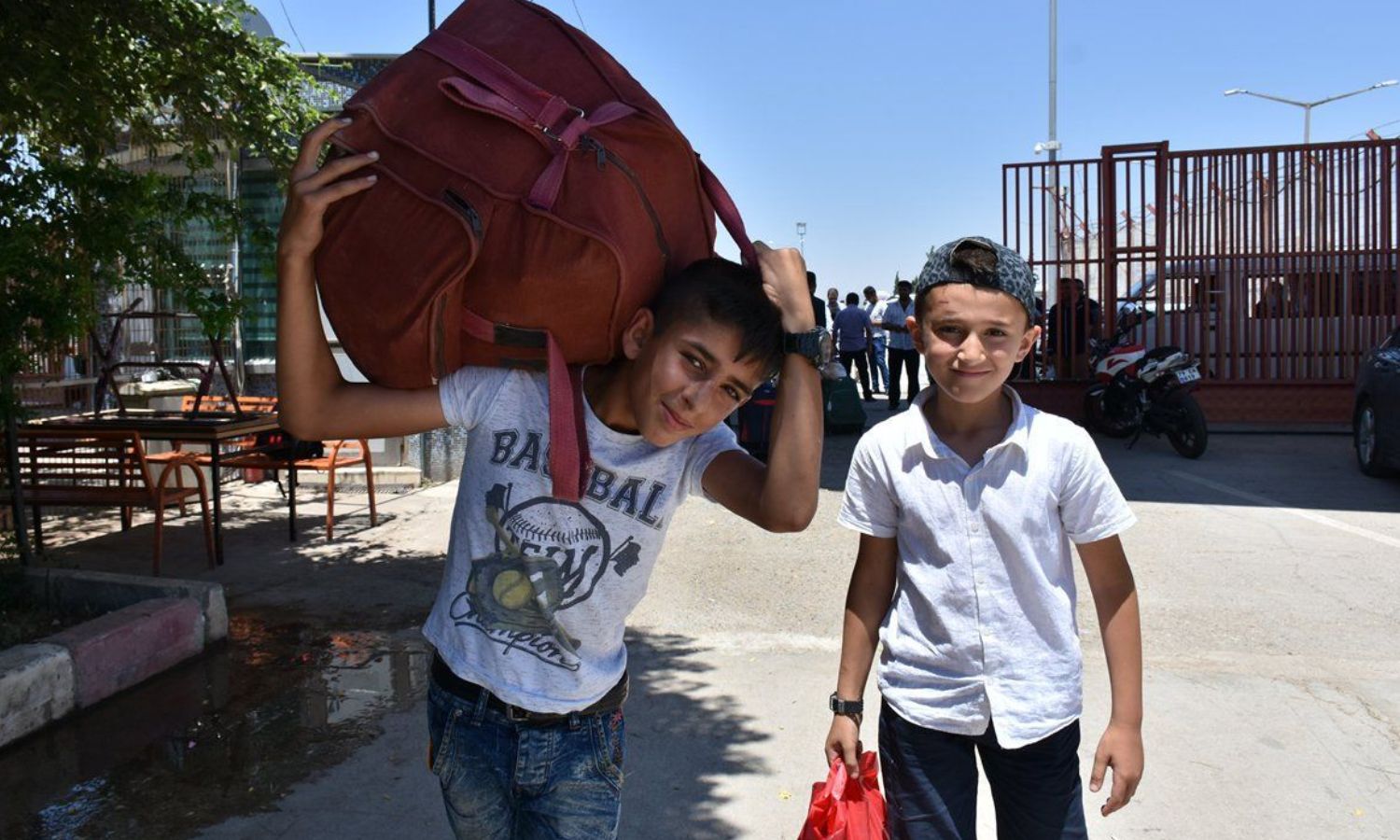
Syrian children entering Turkey through the Bab al-Salama border crossing – May 23, 2019 (Bab al-Salama crossing)
Fear prevails among refugees
“You’re going to your death” is the title of a report by Amnesty International in 2021, and it is one of the dozens of local and international organizations that described the situation of Syrian refugees returning to Syria in light of a deteriorating security reality that affected dozens of returnees from countries of asylum, as various areas of control are witnessing security restrictions and frequent arrests, in addition to internal fighting and repeated shelling in the north-east and west.
According to Enab Baladi’s questionnaire, 66 of the participants considered the existence of security guarantees as their first condition for returning to Syria.
The director of Syrians for Truth and Justice (STJ) organization, Bassam al-Ahmad, told Enab Baladi that the unstable environment, arrests, and continuous violations occupy the largest part of the organizations’ discussions about the file of the return of refugees.
During meetings that brought together the Syrian Civil Society Support Room (CSSR) and Syrian organizations, along with the UN envoy to Syria, Geir Pedersen, in early May, the Syrian organizations discussed with various parties the concept of a safe return to Syria, according to al-Ahmad.
Despite the constant pressures to return the Syrian refugees, al-Ahmad ruled out the possibility of their voluntary return at the present time, pointing out that fear makes stability in all areas of control impossible.
The disappearance of fear is linked to the file of detainees and missing persons in Syria, as it affects, like other human rights files, the desire of Syrians to return, according to al-Ahmad.
He explained that the presence of thousands of forcibly disappeared people, and the failure to make any concessions on this file by the parties to the conflict, makes all returnees vulnerable to be additional victims of that violation and prevents the return of refugees, especially the families of the detainees and the forcibly disappeared.
A project published by the Middle East Institute in 2022 concluded that data shows nowhere in Syria is safe for return. The think tank followed a systematic approach in evaluating the results against 22 United Nations protection thresholds that “must be met before mass voluntary returns begin” and included a survey of 300 returnees to Syria in all four areas of control.
War-torn society
After the war cast a shadow over Syrian society for more than 12 years, various societal problems grew in Syria, and new problems arose that constitute an obstacle to the return of refugees, especially those who were able to integrate into the societies of the countries of asylum.
According to a study prepared by Raslan Amer for the Harmoon Center for Studies, entitled “Syria, Ten Years of Bitter Harvest,” these problems appear clearly in the high crime rate in Syria, the increase in suicides, the high number of school dropouts, in addition to child labor and the chaos of weapons.
Despite the social problems that Syrian refugees face in countries of asylum that prevent them from settling down, many of them consider returning to a war-torn society an unlikely option, especially for people with young children.
Sociology researcher Safwan Qassam told Enab Baladi that a large percentage of Syrian refugees prefer to stay in countries of asylum, ignoring many of the problems they face, in return for living in a more stable society.
Qassam added that the prevalence of social problems for economic, living, and security reasons, such as theft, kidnapping, murder, and violation of women’s rights, makes the trade-off between returning to an exhausted society and staying under legal and economic pressures difficult for refugees, especially in asylum countries.
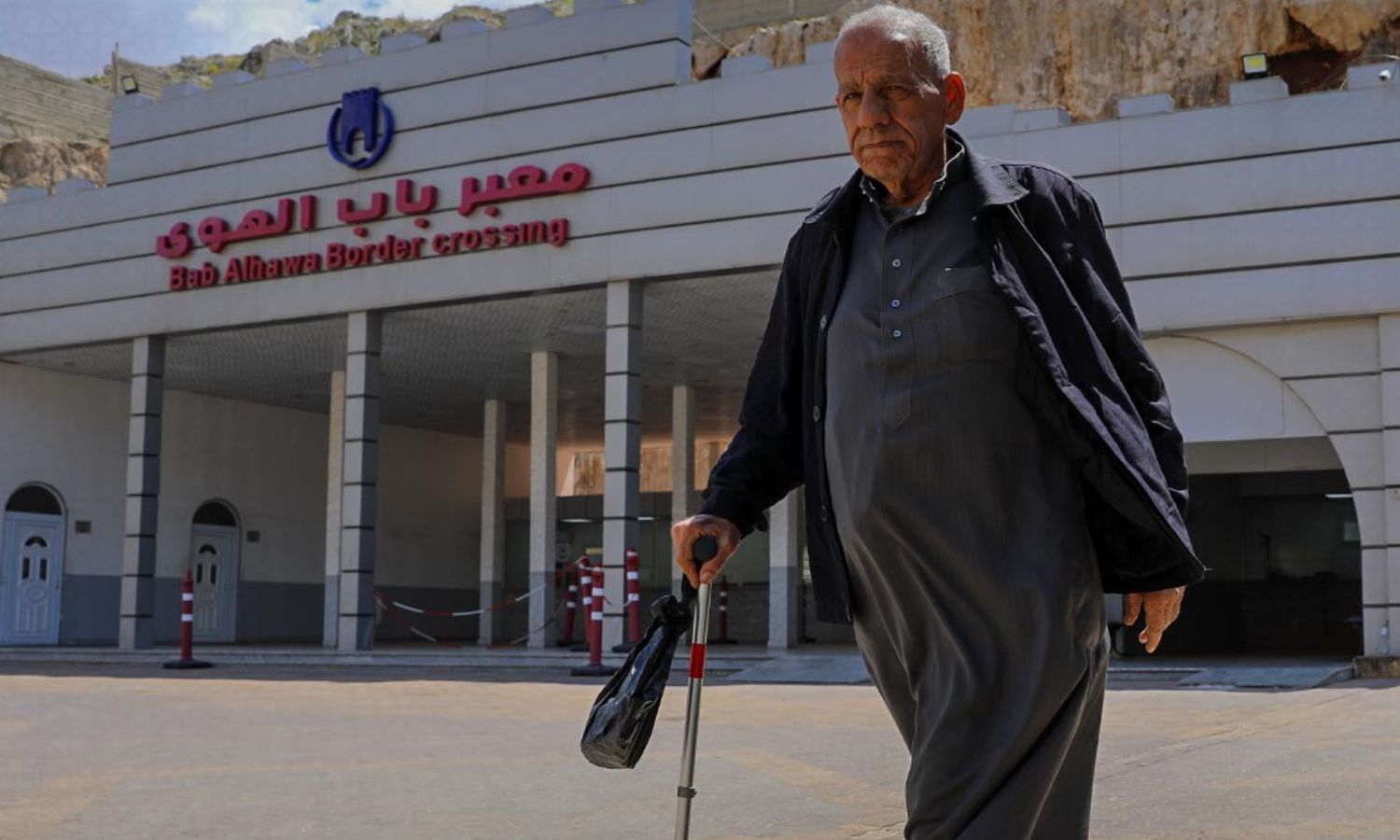
A Syrian returning from Turkey to Syria through the Bab al-Hawa crossing, May 2023 (Bab al-Hawa crossing’s Facebook page)
Economic situation pushes a few to return
The Russian-Ukrainian war and the accompanying rise in inflation levels in most countries of the world led to a decline in the standard of living in many countries.
War has affected most Syrian refugees, especially those who live in tents or rented houses, and the consequent rise in the prices of basic materials that are not commensurate with the monthly income.
Considering economic reasons as one of the reasons for the lack of stability for refugees in countries of asylum, this may prompt them to think about returning to Syria, where the situation is worse in the eyes of some or better in the eyes of others who own a house or a simple job in their own country.
Economist Dr. Firas Shaabo told Enab Baladi that the economic conditions in the countries of asylum may not be the most prominent reason for the refugees’ decision to return to Syria, as far as the security reasons.
The expert considered that no matter how bad the economic conditions in the countries of asylum are, they will not be worse than the conditions in Syria for most refugees in general, where insecurity, chaos, and corruption prevail in the absence of infrastructure and basic necessities of life, and the lack of job opportunities.
On the other hand, this may be one of the motives for the return of a “few” group who have housing, work, and a profession, according to Shaabo.
Most residents in Syria resort to relying on more than one source in an attempt to balance income and expenses, the most prominent of which are remittances from expatriates outside Syria and relying on second jobs, and many families dispense with the basics of their lives in order to reduce their spending.

The meeting of the foreign ministers of Iraq, Saudi Arabia, Egypt, and Jordan with the Foreign Minister of the Syrian regime, Faisal Mekdad, May 2023 (Anadolu Agency)
Variables imposed by “New Middle East”
The Syrian file witnessed accelerating events at the diplomatic level during the past three months, starting with the visit of the Egyptian Foreign Minister, Sameh Shoukry, to Damascus, the first visit after more than ten years.
Although the visit at the time was in solidarity with affectees of the Feb.6 earthquake that struck northern Syria, it opened the door for other visits by high-ranking Arab officials to Damascus.
The most prominent of these visits was by the Saudi Foreign Minister, Faisal bin Farhan, on April 18, and it came after the visit of the Syrian Foreign Minister, Faisal Mekdad, to the Saudi capital, Riyadh.
These visits culminated in two Saudi statements following the two visits, which intersected with common points with the file of the return of Syrian refugees to their cities and the conduct of a comprehensive national reconciliation, the details of which were not mentioned. This was also referred to in the statement of the consultative meeting that brought together four Arab foreign ministers with the Syrian regime in the Jordanian capital, Amman, on May 1.
These successive visits and statements, and the repeated talk about “Syria’s return to its Arab surroundings,” indicate major regional changes resulting from international changes as well, whether the Russian invasion of Ukraine or the Iranian nuclear file, and the Chinese presence in the Middle East.
As far as the file of the return of Syrian refugees is related to the process of changing the behavior of the regime or its departure from power in Syria, the matter seems more complicated, especially since the Syrian file, of which the refugees are an essential part, is no longer a local file specific to the Syrians or the Syrian regime only, but rather is linked to other regional and international files as well.
Maan Talaa, director of the research department at the Omran Center for Strategic Studies, said that a new regional system is being formed with Turkey, Iran, and Israel in the absence of an Arab side and a clear American vision.
Talaa pointed out to Enab Baladi that the general political position of any country is mainly linked to interests, and part of these interests comes with changing the map of regional and international alliances, so there is a temporary transgression of some positions.
Talaa believes that all files related to the Syrian file (Captagon, refugees, security) are part of general understandings related to regional changes.
The statement of the Saudi Ministry of Foreign Affairs on Faisal bin Farhan’s visit to Damascus conveyed the Saudi minister’s assertion of “creating the necessary conditions for the return of refugees and displaced persons to their areas,” which was also referred to in the final statement of the consultative meeting between the foreign ministers of Iraq, Jordan, Saudi Arabia, Egypt and the regime, which was held in Amman.
At the time, the statement mentioned several key points related to the return of refugees, most notably that “the voluntary return of Syrian refugees is a top priority, and the necessary steps must be taken to start implementing it immediately.”
No guarantees
The return of Syrian refugees to their towns and villages is linked to two main factors.
The first is the existence of real guarantees of a safe return without exposure to arrest or any other risks, and the second is the creation of the necessary infrastructure.
If the infrastructure is related to the economic factor, the guarantees are directly related to the political factor, specifically the Syrian regime as a source of threat to the Syrian refugees wishing to return, especially since its repeated statements about emphasizing the return of the Syrian refugees come in contrast to its actions on the ground, at a time when it held several conferences with Russia, during which the regime advocated for the return of refugees, but did not apply any of the stipulated conditions for a safe return.
The Syrian Network for Human Rights (SNHR) stated on April 27 that the Syrian regime and Iranian militias pose a serious threat to the lives of the refugees being returned to Syria, documenting its refusal to admit a group of refugees who were forcibly deported by the Lebanese authorities and subjected to looting and extortion by the regime forces.
The report also documents 2,504 cases of arbitrary detention of refugees who have returned from countries of asylum or residence, then only 1,517 cases were released from 2014 until the date this report was published.
The report also mentioned the imposition of many arbitrary laws aimed at controlling the property of the displaced and refugees, such as Law (Act) 63 and Decree 66 issued in 2012.
These moves open the door to two basic questions: What guarantees might the regime provide and who controls them, and does the regime really want the return of the Syrian refugees?
Talaa believes that return is a demand of the Syrian refugees themselves before being an Arab or from a country of asylum and is linked to the existence of a safe environment for community participation in governance, which in turn requires long, major, and radical changes in the constitution and the legal environment, as well as in the form of political and civil life in Syria.
Based on these details, there are no real guarantees to control the return, especially since the regime, which has not supported the political process for many years, will not present current guarantees but will present models of reconciliations and settlements that it implemented in Daraa, Homs, and others, according to Talaa.
Talaa added to Enab Baladi that the Syrian regime will present only temporary patterns until it is reconstituted again. On the other hand, the Arab countries themselves will not provide real guarantees, but rather political ones, given that the Arab openness itself comes as part of regional changes.
Talaa believes that the Arab desire for formal political guarantees is to buy time until the Syrian regime is “marketed” again.
Does the regime want the return of refugees?
The huge amount of analyses, news, political meetings, and resulting data raises a question: “Does the regime really want the Syrian refugees to return to their villages and cities, at least for economic reasons?”
The EU and the US link reconstruction and the lifting of sanctions to a real political transition in Syria, which includes the return of refugees, and therefore there is no reconstruction without them.
Economist Firas Shaabo told Enab Baladi that the Syrian regime has no desire for the return of the refugees, which is also indicated by researcher Maan Talaa.
From Shaabo’s point of view, the files of reconstruction, attracting funds, and restoring relations precede the file of the return of refugees in terms of importance to the Syrian regime, given that allowing the return of refugees may lead to the international community’s procrastination in entering into the files that are most important to it.
On the other hand, the Syrian regime is unable to secure the basic needs of those who live in its areas, and from this standpoint, the return of refugees will put additional pressure on it, especially with the huge economic problems it suffers from, and the continuous decline in the value of the Syrian pound against foreign currencies.
Therefore, this file is settled, and what the regime is asking directly from the international community is for the latter to rebuild and pay money, and then the refugees will return, according to Shaabo.
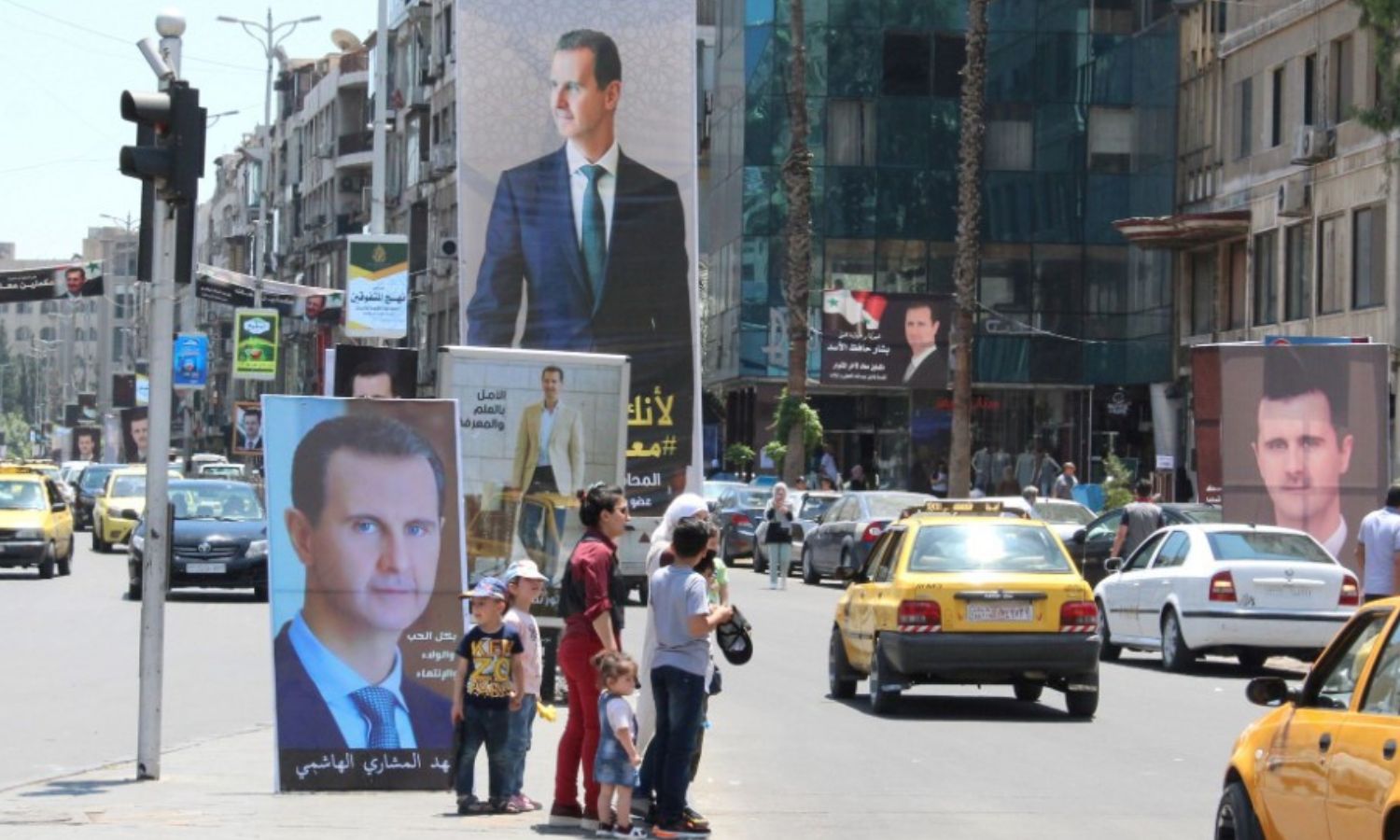
People standing near pictures of the head of the Syrian regime, Bashar al-Assad, during the previous elections – May 18, 2021 (Reuters)
The solution depends on change
Economics is the companion of politics
The talk and reports of returning back home to Syria come as part of the search for a solution by the Syrians to the state of uncertainty that many of them live in in countries of asylum, in which the mechanism for dealing with their legal status, their rights and needs and the extent of their provision varies, and the rise and fall of hate speech and racist incidents against them.
A limited number of people can think of diving deep into a third country and looking for an alternative to create stability on neutral ground, but the lack of material stability also does not allow a refugee to have many options to choose between.
In view of the issue of return, which the Syrian regime has been using its rhetoric for years, Syria, in general, and the regime-held areas, in particular, do not seem like a comfortable option for Syrian refugees who have been living outside those areas for years, which means a completely different image and lifestyle.
Figures, statistics, and studies conducted by international organizations provide clear justifications for the vision of those who refuse to return.
For years, Syria has kept at the bottom of the indicators concerned with measuring various aspects of political, social, legal, economic, and living conditions. This became clearer after the devastating earthquake that affected four Syrian provinces in early February.
At a time when many crises in Syria converge simultaneously, Syria came in sixth place as the country most unable to manage crises for the year 2022, according to the index issued by the American Peace Fund.
The humanitarian crisis in Syria also ranked sixth on the list of the International Rescue Committee for the year 2023 due to the ongoing humanitarian effects of the conflict, and the worsening health situation after the spread of Cholera disease in the country, while it was ranked ninth in the 2021 report.
Syria is the most corrupt for the year 2022, according to the classification of the Global Risk Organization, and the third most fragile country for the same year, after Yemen and Somalia, according to the index issued by the American Peace Fund for the fragility of countries.
Syria is considered one of the lagging countries in the indicators of worker poverty, labor productivity, and fuel prices, although it is an oil country (many of the main oil fields are concentrated in areas controlled by the Autonomous Administration in northeastern Syria).
According to the Internet World Stats website, poverty and high prices have weakened access to the most basic services, such as the Internet, where 46.6% of the population uses the Internet, making Syria 13th out of 14 countries in the Middle East.
Syria is the first in terms of lack of freedom globally, according to the American Freedom House report for the year 2022, and the last in the Arab world on the democracy index in the same year, according to the classification of the Economist Intelligence Unit.
It is at the forefront of violations against different groups of society, and one of the worst countries to live in for women, according to the classification of the American Georgetown Institute, and many numbers impose themselves as a translation of the lived reality in a country that is not in line with the aspirations of its citizens.
Economics Dr. Firas Shaabo told Enab Baladi that the issue of returning to Syria is not only dependent on the citizens’ bitter economic situation, but the advantages are absent regardless of the area of control, whether the regime or the opposition.
Shaabo said that there is widespread corruption, chaos, insecurity, the absence of infrastructure, and the inability to operate. This means a lack of job opportunities.
Turkey’s talk of building villages, residential complexes, or buildings in northwestern Syria to return refugees, for example, also requires the establishment of factories, facilities, companies, farms, roads, infrastructure, and a rotating economic wheel to push production and consumption. Economic hotspots must be created to achieve an actual recovery, according to Shaabo.
The absence of political change means that there is no reconstruction, and despite the moves of some countries, the lack of a solution that Europe and America will accept will not lead to a result, and Syria needs actions, not words, at least economically, and the moves of some countries may prolong the survival of the regime, but they will not save it. The value of the lira is evidence of that, the economist concluded.
if you think the article contain wrong information or you have additional details Send Correction
النسخة العربية من المقال
-
Follow us :












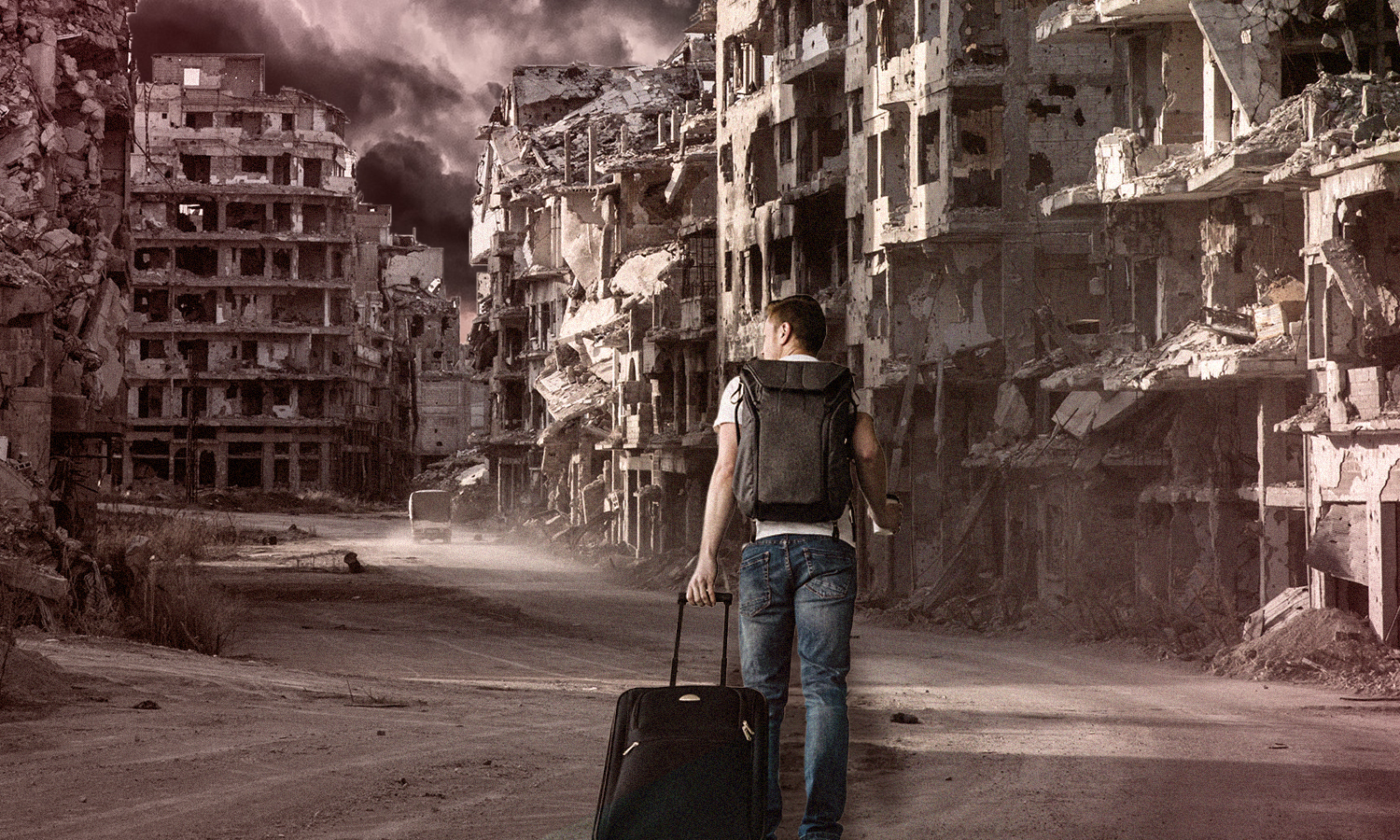
 A man walking on a destroyed street inside Syria (edited by Enab Baladi)
A man walking on a destroyed street inside Syria (edited by Enab Baladi)





 A
A
A
A
A
A
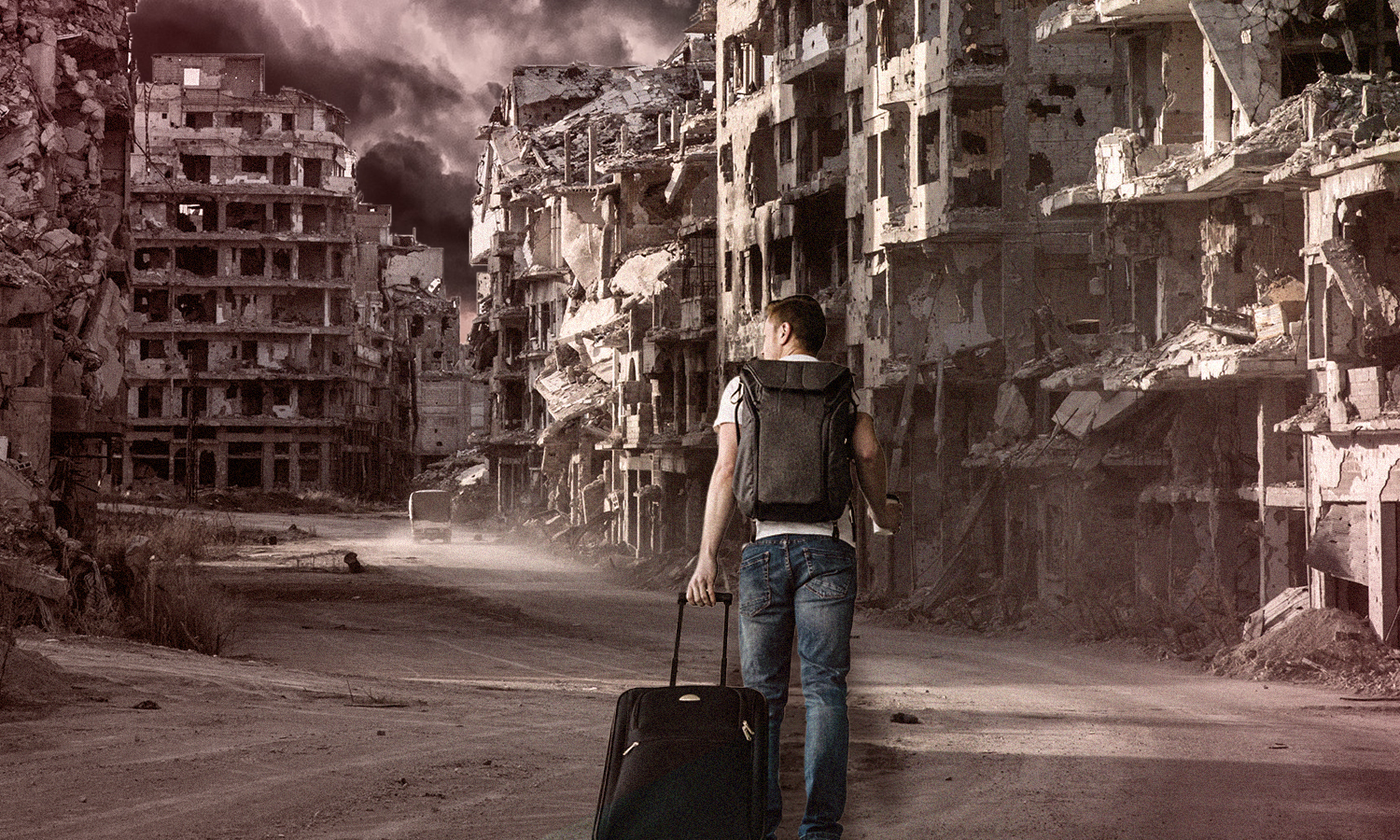


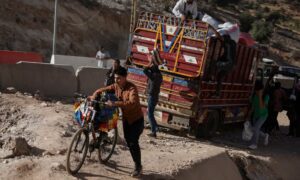

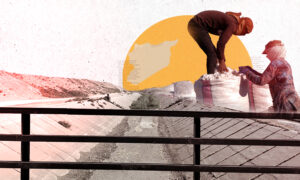
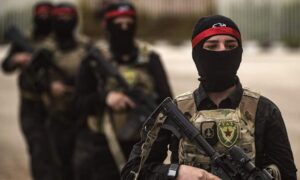
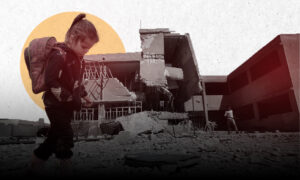
 More In-Depth
More In-Depth